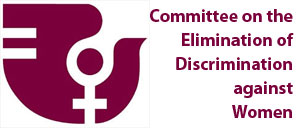Forced sterilisation, harmful guardianship laws: CEDAW takes a stance on violence against women with disabilities
Everyone has the right to decide on their own body and make their own reproductive choices. But an alarming number of women and girls with disabilities have been, and continue to be, denied these rights through the practice of forced sterilization. Women with intellectual disabilities are specifically at risk, because they often lack access to information on sexuality and sexual health.
The UN Committee on the Elimination of Discrimination Against Women (CEDAW Committee) has tackled this issue in its updated general recommendation on gender-based violence, General Recommendation No. 35.
The text contains several references to women and girls with disabilities and the particular issues they face when it comes to gender-based violence.
Sterilisation without informed consent is gender-based violence
First of all, the Committee describes sterilisation, as well as other medical procedures performed on women with disabilities without informed consent, as gender-based violence. It demands that states repeal any legislation that allows, tolerates, or condones this violence.
The Committee also takes a stance on guardianship – a system which can hinder women to speak out on abuse they suffered: It asks states to repeal any laws that deter women from reporting gender-based violence, including “guardianship laws that deprive women of legal capacity or restrict the ability of women with disabilities to testify in court.”
Finally, the Committee asks states to implement accessible protection mechanisms to prevent further or potential violence. This shold be done, for example, by removing communication barriers for victims with disabilities. The Committee also calls on states to develop and disseminate accessible information, about legal and social resources available to victims.
Inclusion Europe welcomes the updated General Recommendation of the CEDAW Committee. Women with intellectual disabilities are a group which is specifically vulnerable to (sexual) violence and must be protected.
Our project “Life after Violence” deals with the question how women who have suffered violence in institutions cope with it after leaving the institution.





1 Response
[…] Read the article: Forced sterilisation, harmful guardianship laws: CEDAW takes a stance on violence against women with… […]